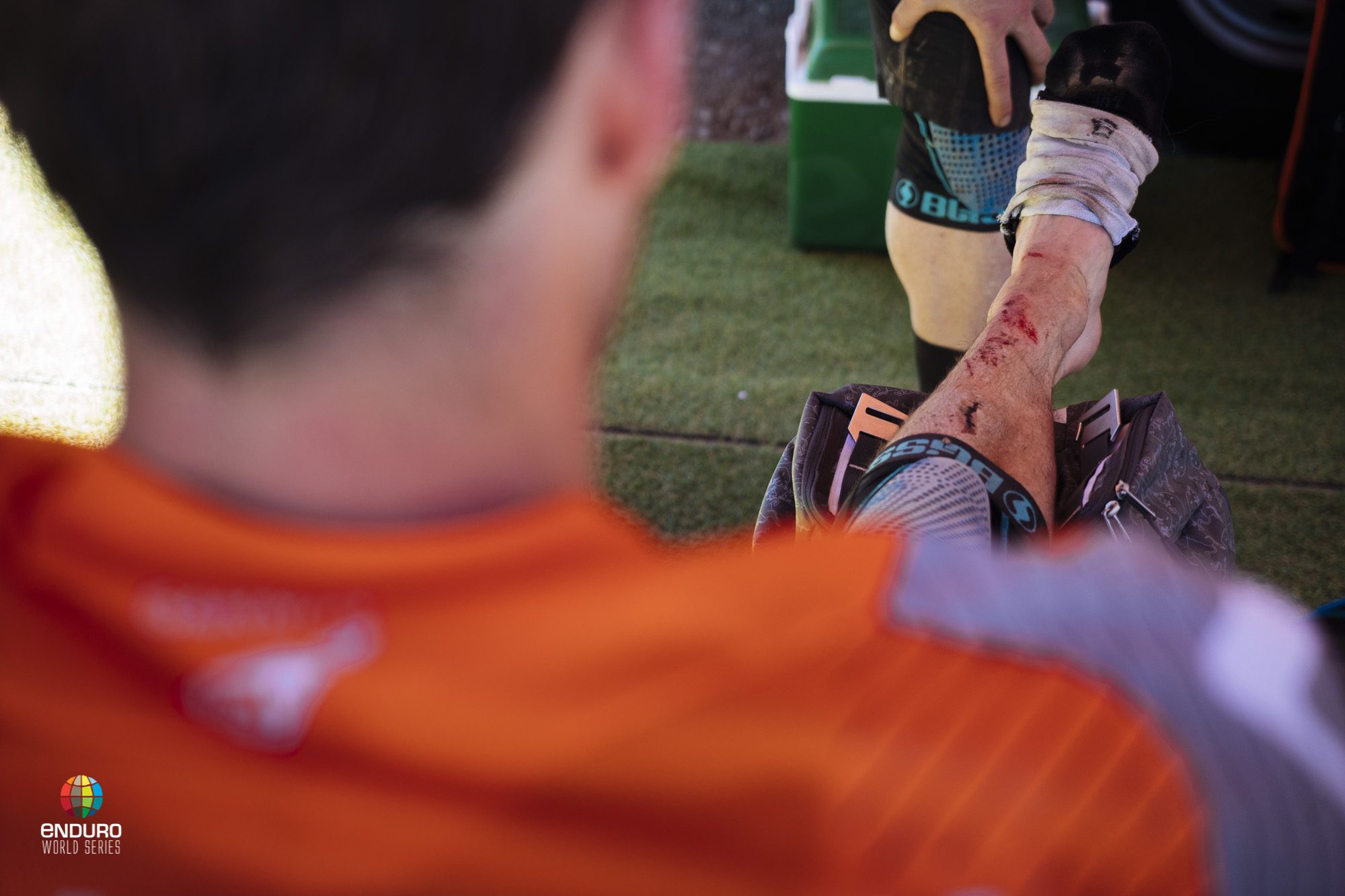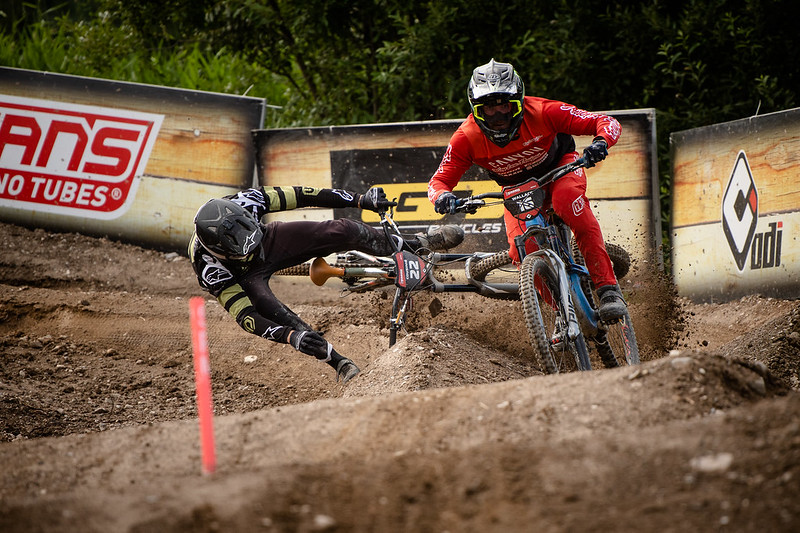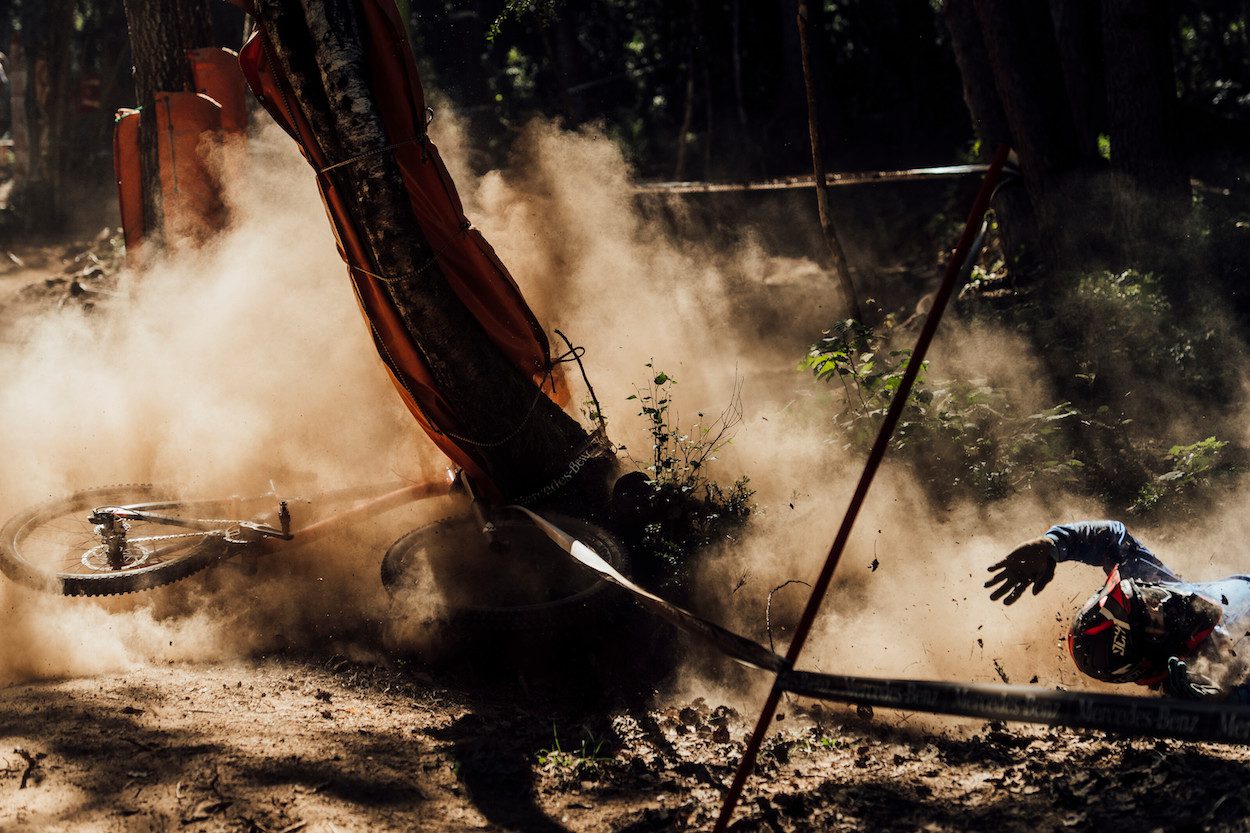Can mountain bikers tell if they’ve had a concussion?
And do they know what to do if they have?
 Photo by:
Enduro World Series
Photo by:
Enduro World Series
Concussions can be scary. They’re one of the unfortunate risks associated with our sport. They can also be sneaky.
That’s why a study from McGill University decided to find out if mountain bikers could tell if they had suffered a concussion. Further, if they were able to self-diagnose a concussion, did they know what to do next?
RELATED: Fly through Kate Courtney’s brain for concussion education
The results were interesting. And maybe surprising. Especially for anyone who thinks that they’d know enough to play it safe if they ever found themselves in that scenario.
Playing it safe, it turns out, might be harder than most of us think.

Recognizing a concussion is harder than most think
According to the study, “more than one-third of mountain bikers do not recognize when they have had a concussion and continue riding after experiencing concussion symptoms or with a broken helmet.” As the authors note, mountain bikers choosing to continue riding “put themselves at an increased risk of concussion or worsening concussion symptoms.”
RELATED: Brandon Semenuk joins Team MIPS
Specifically, researchers found 12.8% of the riders in the study “experienced a concussion symptom without being diagnosed with a concussion.”
Further, 67.5% of the riders who experienced a concussion symptom continued to ride after. Most surprising, 29.2% of riders reported they continued riding with a broken helmet.

How can concussion safety be improved?
The authors have several recommendations for how to improve brain injury awareness. These are split between a racing environment and everyday riding.
For race and event organizers, the study recommends implementing mandatory sideline concussion protocols. This is a recommendation the Union Cycliste Internationale (UCI) agrees with. Cycling’s governing body is set to ratify new concussion protocols in January. Among the recommendations are improvements to course-side assessment at UCI-sanctioned events.
RELATED: UCI sets new, more cautious concussion protocol
For everyday riding, the study’s recommendations focus on improving rider education. The authors “encourage mountain bike advocacy groups to develop concussion sensitization programs that will educate riders about the symptoms of a concussion, the need to stop riding after experiencing concussion symptoms, and the importance of not riding with a broken helmet.”
The results were published in Clinical Journal of Sport Medicine in the aptly titled “Do Mountain Bikers Know When They Have Had a Concussion and, Do They Know to Stop Riding?” The paper, by Gregory Clark, Nathalie A. Johnson, Sanjeet S. Sluja, José A Correa and J Scott Delaney, was originally published on Dec. 31, 2019.
Brain injury is an increasingly important issue in mountain biking, like many other sports right now. High profile athletes have started speaking out more to help improve concussion awareness. Kate Courtney, 2018 elite women’s cross country world champion, has both experienced concussions and advocated for better awareness. Recently, Canadian freeride and slopestyle icon Brandon Semenuk became the second rider on Team MIPS.
RELATED: Preventing concussions: Skills and strategies for staying safe on the bike
